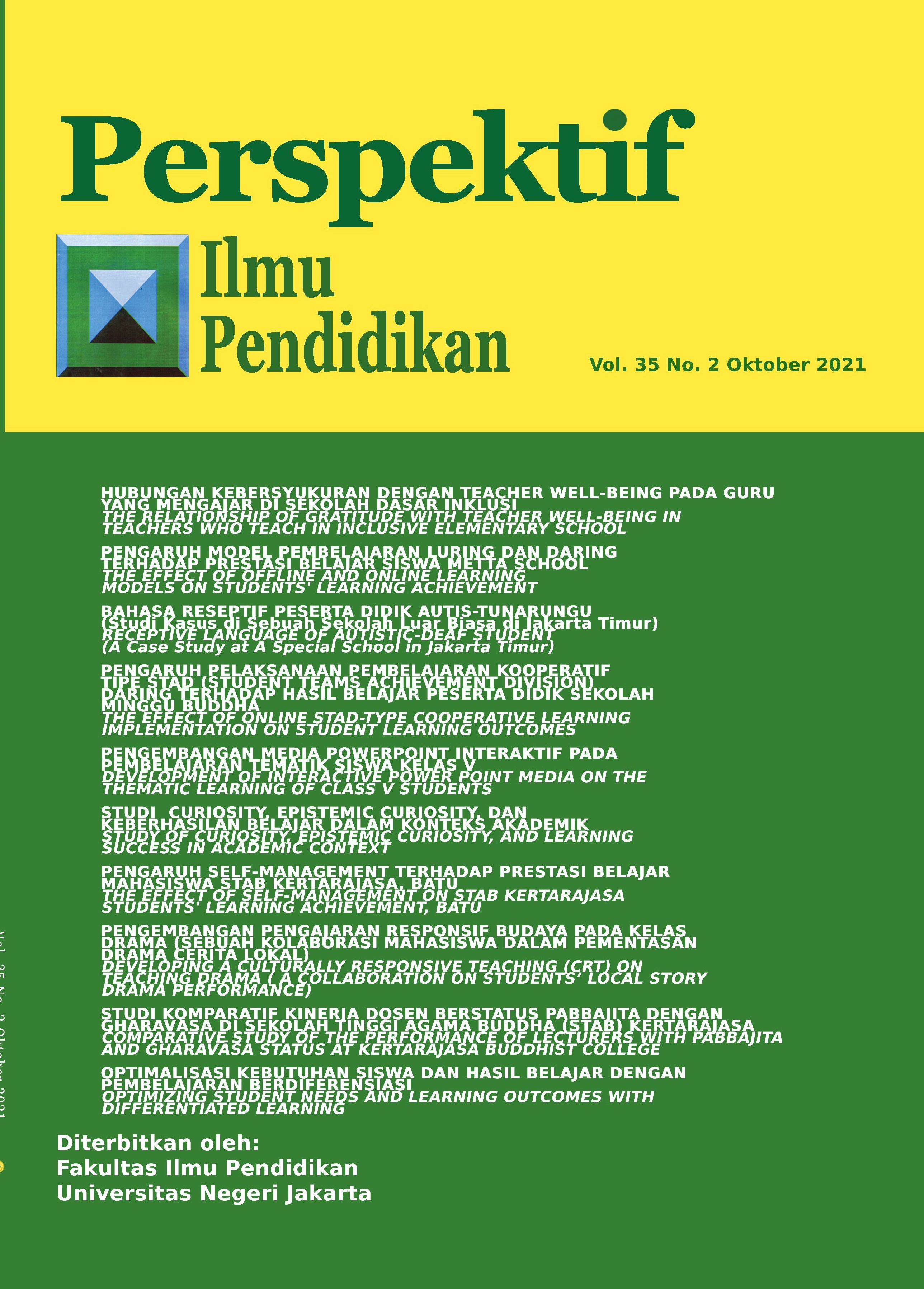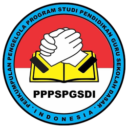OPTIMALISASI KEBUTUHAN MURID DAN HASIL BELAJAR DENGAN PEMBELAJARAN BERDIFERENSIASI
DOI:
https://doi.org/10.21009/PIP.352.10Keywords:
Keywords: learning, differentiation, needs, learning outcomesAbstract
Abstract: Differentiated learning is an attempt to adjust the learning process in the classroom to meet the individual learning needs of each student. Differentiated learning is an adjustment to interests, learning profiles, and student readiness in order to achieve increased learning outcomes. Through differentiated learning activities, all their needs are accommodated according to their interests or learning profiles. In classes that apply differentiation learning, teachers must think that students have diverse learning needs and differ from one another. There are four (4) components of differentiated learning, namely: content, process, product, and learning environment. Differentiated learning is able to help students achieve optimal learning outcomes, because the products they will produce are according to their interests. Differentiated learning process must provide ample space for students to demonstrate what they have learned. Products produced by students can be presented in an article, song, poem, infographic, poster, video performance, video animation or other forms according to the skills and interests of each group.
Downloads
Published
How to Cite
Issue
Section
License
Authors who publish with this Journal agree to the following terms:
- Author retain copyright and grant the journal right of first publication with the work simultaneously licensed under a creative commons attribution licensethat allow others to share the work within an acknowledgement of the work’s authorship and initial publication of this journal.
- Authors are able to enter into separate, additional contractual arrangementfor the non-exclusive distribution of the journal’s published version of the work (e.g. acknowledgement of its initial publication in this journal).
- Authors are permitted and encouraged to post their work online(e.g. in institutional repositories or on their websites) prior to and during the submission process, as it can lead to productive exchanges, as well as earlier and greater citation of published works.
-
Users/public use of this website will be licensed to CC BY-NC-SA Creative Commons Attribution-NonCommercial-ShareAlike 4.0 International License












